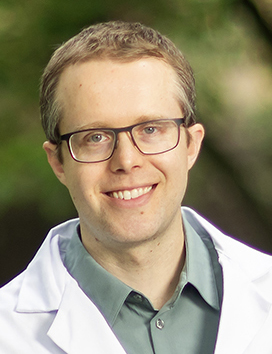Penn Faculty Kyle H. Vining, DDS, Ph.D. and Julia T. Warren, MD, Ph.D. named “Hartwell Foundation Award” 2023 Awardees
The Office of the Vice Provost for Research is pleased to announce that on April 1st, 2024 the Hartwell Foundation announced two Penn faculty members as the most recent awardees of the Individual Biomedical Research Awards.
Each award comes with a three-year grant of $300,000 to the faculty member’s research program. In addition, the Hartwell Foundation will also provide two annual awards of $50,000 each for postdoctoral fellows conducting research that impacts children’s health.
We congratulate Kyle H. Vining, DDS, Ph.D., and Julia T. Warren, MD, Ph.D. on this achievement!
Targeting Bone Marrow Fibrosis in Cellular Immunotherapy for Acute Leukemia.

Kyle H. Vining, DDS, Ph.D.
Assistant Professor
Department of Materials Science and Engineering (MEAM)
School of Engineering and Applied Science
Division of Restorative Dentistry
School of Dental Medicine
Kyle Vining, an assistant professor of preventive and restorative sciences in Penn Dental Medicine and in materials science and engineering in Penn Engineering, has received an individual Biomedical Research Award from the Hartwell Foundation to explore a novel approach to improving the treatment for childhood leukemia. Dr. Vining, a member of the Center for Innovation & Precision Dentistry (CiPD), is among ten researchers representing eight institutions selected as 2023 Hartwell Foundation awardees.
Each year, the Hartwell Foundation invites a select group of biomedical research institutions to nominate faculty for its highly competitive awards, which provide significant financial support for three years, specifically for early-stage, innovative, and cutting-edge biomedical research that has not yet received outside funding. Research proposals must focus on improving the lives of children in the United States.
To date, cellular immunotherapy has shown great promise in treating childhood leukemia by engineering immune cells to target cancerous tissue. However, many patients suffer relapses and require additional treatments, risking serious side effects. One reason that some children do not respond to immunotherapy or relapse after treatment may be changes in their bone marrow itself. Dr. Vining’s team recently identified fibrotic tissue—that is, tissue that has hardened or scarred—in the bone marrow of such children. With the support of the Hartwell Foundation, Dr. Vining’s lab will undertake two research projects to investigate whether structural changes in these children’s bone marrow is suppressing the effectiveness of immunotherapies.
Mitochondrial Function and Homeostasis as Targets to Promote Neutrophil Production for Transfusion.

Julia T. Warren, MD, Ph.D.
Assistant Professor
Department of Pediatrics
Perelman School of Medicine
Division of Hematology
Children’s Hospital of Philadelphia
Julia Warren, an assistant professor of pediatrics in the Perelman School of Medicine and in the division of Hematology at the Children’s Hospital of Philadelphia, has received an individual Biomedical Research Award from the Hartwell Foundation to explore a novel approach to improving the treatment therapies to augment neutrophil production for pediatric patients undergoing chemotherapy, bone marrow transplant, or with SCN. Dr. Warren, a member of the CHOP Pediatric Comprehensive Bone Marrow Failure Center, is among ten researchers representing eight institutions selected as 2023 Hartwell Foundation awardees.
Each year, the Hartwell Foundation invites a select group of biomedical research institutions to nominate faculty for its highly competitive awards, which provide significant financial support for three years, specifically for early-stage, innovative, and cutting-edge biomedical research that has not yet received outside funding. Research proposals must focus on improving the lives of children in the United States.
Currently, there is a lack of a robust understanding of the mechanisms governing immature to mature neutrophil transition. This has limited the ability of researchers to develop novel therapeutics or to develop effective neutrophil transfusions. With the support of the Hartwell Foundation, Dr. Warren’s lab will undertake a research project using genome editing and targeted drug therapies, to map the genetic and functional aspects of immature neutrophil energy production. Ultimately, improving the understanding of neutrophil development would open the possibility for timely, life-saving interventions (both targeted drugs and transfusions) for neutropenic patients with infections. This could impact the survival of children receiving aggressive chemotherapy to treat cancer, bone marrow transplantation, or with genetic causes of neutropenia.